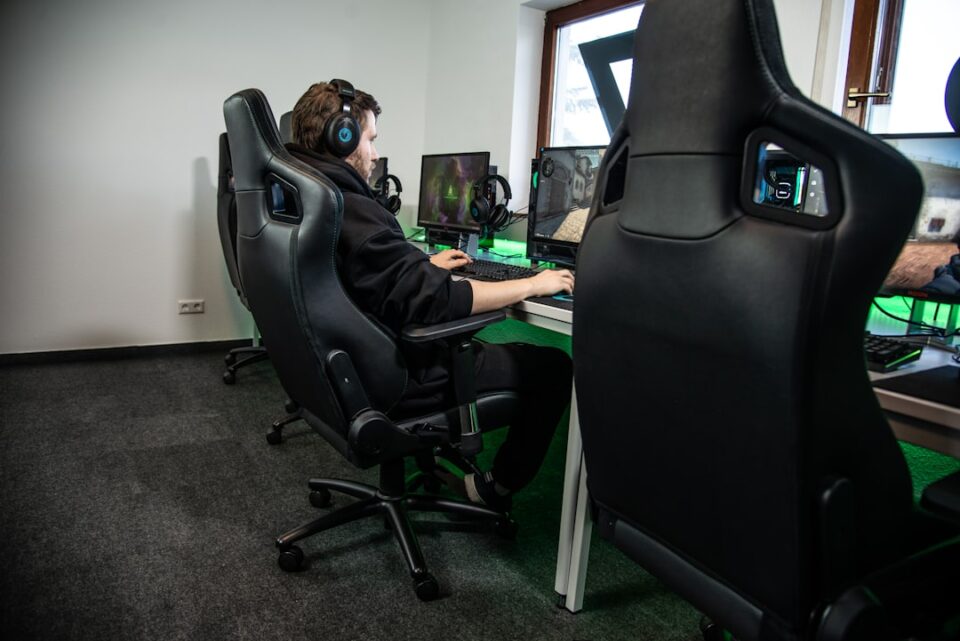In today’s rapidly evolving world of gaming, building a successful gaming community has become more important than ever. A strong community can help gamers connect, improve their skills, and ultimately enhance their overall gaming experience. Whether you’re a gaming enthusiast looking to create a community for like-minded individuals or a gaming company trying to build a loyal fan base, here are some tips to help you build a successful gaming community.
1. Define your community’s goals and values
Before you start building your gaming community, it’s crucial to define its goals and values. What do you want your community to achieve? Is it to provide a platform for gamers to connect and socialize, or do you want to focus on competitive gaming and skill development? By setting clear goals and values, you can attract the right audience and ensure that everyone is on the same page.
2. Choose the right platform
The platform you choose for your gaming community can make a big difference in its success. Whether you opt for a social media platform like Facebook or Twitter, a gaming forum, or a dedicated website, make sure it’s easy to navigate, user-friendly, and provides the necessary tools for communication and collaboration. Consider where your target audience spends most of their time and choose a platform that aligns with their preferences.
3. Create engaging content
To keep your community members engaged and active, it’s important to create regular and engaging content. This could include gaming tutorials, gameplay videos, community events, contests, and discussions about the latest gaming trends. By providing valuable and entertaining content, you can foster a sense of belonging and keep your community members coming back for more.
4. Encourage communication and collaboration
Communication is key to building a successful gaming community. Encourage your members to interact with each other, share tips and strategies, and collaborate on projects and events. Consider creating channels for different topics or games, hosting live streams or webinars, and organizing online tournaments and competitions. By fostering a sense of community and camaraderie, you can help your members connect and build relationships with each other.
5. Listen to feedback
Listening to feedback from your community members is essential for building a successful gaming community. Pay attention to their comments, suggestions, and concerns, and make an effort to address them promptly. You can use surveys, polls, or direct communication to gather feedback and make improvements to your community. By showing that you value their input, you can build trust and loyalty among your members.
6. Promote inclusivity and diversity
Creating an inclusive and diverse gaming community is important for fostering a welcoming and supportive environment. Encourage people of all backgrounds, genders, and skill levels to join your community and participate in its activities. Avoid discriminatory language or behavior, and make sure to enforce clear guidelines for respectful communication and behavior. By promoting inclusivity and diversity, you can create a safe and enjoyable space for all gamers.
7. Collaborate with influencers and partners
Collaborating with influencers, content creators, and gaming partners can help you reach a wider audience and attract more members to your community. Consider partnering with popular streamers, YouTubers, or gaming companies to host joint events, create exclusive content, or promote your community across different platforms. By leveraging the reach and influence of these partners, you can increase your visibility and credibility within the gaming community.
8. Provide opportunities for growth and development
One of the key benefits of a gaming community is the opportunity for growth and development. Provide your members with resources, tools, and support to help them improve their skills, expand their knowledge, and achieve their gaming goals. This could include hosting workshops, offering mentoring programs, or providing access to training materials and resources. By investing in the growth and development of your members, you can create a thriving and successful gaming community.
9. Maintain a positive and supportive atmosphere
Creating a positive and supportive atmosphere is essential for building a successful gaming community. Encourage your members to be respectful, encouraging, and helpful towards each other, and take a zero-tolerance approach to toxicity, harassment, or inappropriate behavior. Use moderation tools, community guidelines, and reporting systems to maintain a safe and welcoming environment for all members. By fostering a culture of respect and support, you can create a community where everyone feels valued and accepted.
10. Stay consistent and persistent
Building a successful gaming community takes time and effort, so it’s important to stay consistent and persistent in your efforts. Keep creating engaging content, hosting events, and communicating with your members regularly. Be patient and flexible, and be prepared to adapt your strategies and tactics based on feedback and results. By staying committed and dedicated to your community, you can overcome challenges and build a strong and thriving gaming community.
In conclusion, building a successful gaming community requires planning, effort, and dedication. By defining your goals and values, choosing the right platform, creating engaging content, encouraging communication and collaboration, listening to feedback, promoting inclusivity and diversity, collaborating with influencers and partners, providing opportunities for growth and development, maintaining a positive and supportive atmosphere, and staying consistent and persistent, you can create a thriving and successful gaming community that brings gamers together, enhances their gaming experience, and fosters a sense of community and belonging.

